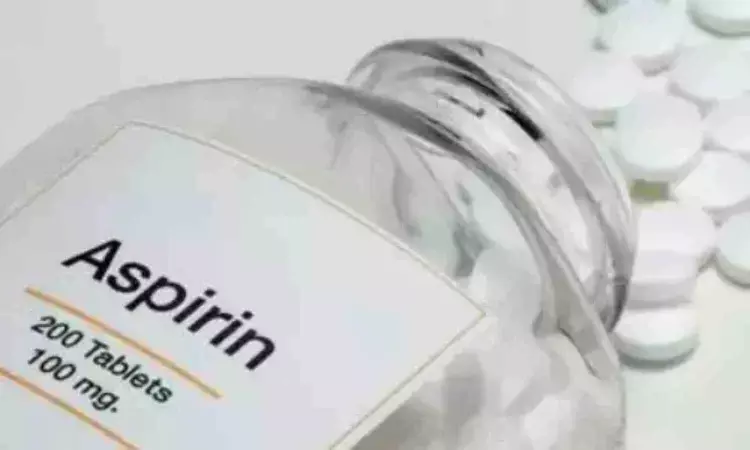- Home
- Medical news & Guidelines
- Anesthesiology
- Cardiology and CTVS
- Critical Care
- Dentistry
- Dermatology
- Diabetes and Endocrinology
- ENT
- Gastroenterology
- Medicine
- Nephrology
- Neurology
- Obstretics-Gynaecology
- Oncology
- Ophthalmology
- Orthopaedics
- Pediatrics-Neonatology
- Psychiatry
- Pulmonology
- Radiology
- Surgery
- Urology
- Laboratory Medicine
- Diet
- Nursing
- Paramedical
- Physiotherapy
- Health news
- Fact Check
- Bone Health Fact Check
- Brain Health Fact Check
- Cancer Related Fact Check
- Child Care Fact Check
- Dental and oral health fact check
- Diabetes and metabolic health fact check
- Diet and Nutrition Fact Check
- Eye and ENT Care Fact Check
- Fitness fact check
- Gut health fact check
- Heart health fact check
- Kidney health fact check
- Medical education fact check
- Men's health fact check
- Respiratory fact check
- Skin and hair care fact check
- Vaccine and Immunization fact check
- Women's health fact check
- AYUSH
- State News
- Andaman and Nicobar Islands
- Andhra Pradesh
- Arunachal Pradesh
- Assam
- Bihar
- Chandigarh
- Chattisgarh
- Dadra and Nagar Haveli
- Daman and Diu
- Delhi
- Goa
- Gujarat
- Haryana
- Himachal Pradesh
- Jammu & Kashmir
- Jharkhand
- Karnataka
- Kerala
- Ladakh
- Lakshadweep
- Madhya Pradesh
- Maharashtra
- Manipur
- Meghalaya
- Mizoram
- Nagaland
- Odisha
- Puducherry
- Punjab
- Rajasthan
- Sikkim
- Tamil Nadu
- Telangana
- Tripura
- Uttar Pradesh
- Uttrakhand
- West Bengal
- Medical Education
- Industry
Statins, aspirin may impact muscle health in smokers, suggests study

For current and former smokers, statins may reduce the amount of chest muscle loss, while aspirin may contribute to increased chest muscle loss according to a new study. The study is published in the January 2025 issue of Chronic Obstructive Pulmonary Diseases: Journal of the COPD Foundation, a peer-reviewed, open-access journal.
Many people who are current or former smokers are prescribed statins to manage high cholesterol and aspirin to manage heart disease. Research has shown that current or former smokers experience increased skeletal muscle loss, especially in people with COPD.
COPD is an inflammatory lung disease, comprising several conditions, including chronic bronchitis and emphysema, and can be caused by genetics and irritants like smoke or pollution. The disease affects more than 30 million Americans and is the fourth leading cause of death worldwide.
This new study sought to determine if these common medications are associated with skeletal muscle loss. Researchers examined chest CT imaging data from the COPD Genetic Epidemiology (COPDGene®) study to determine loss in pectoralis muscle area and pectoralis muscle density. This study included 4,191 participants who had reported medication and chest CT scan data for both COPDGene phase 1 and phase 2 visits.
“Current and former smokers have a higher risk of cardiovascular disease and diabetes and are commonly prescribed statins and aspirin to treat these conditions. By examining the impact of these medications on pectoralis muscle area and density, we found that statins can potentially reduce chest muscle loss, while aspirin may contribute to increased chest muscle loss,” said Toru Shirahata, M.D., a pulmonologist at Brigham and Women’s Hospital and Harvard Medical School and lead author of the study. “By further examining the impact of statins and aspirin on skeletal muscle mass, health care providers may be able to better personalize treatments to improve outcomes for these patients.”
Reference:
Shirahata T, Enzer NA, Castro V, et al. Effect of common medications on longitudinal pectoralis muscle area in smokers. Chronic Obstr Pulm Dis. 2025; 12(1): 23-32. doi: http://doi.org/10.15326/jcopdf.2024.0557
Dr Kamal Kant Kohli-MBBS, DTCD- a chest specialist with more than 30 years of practice and a flair for writing clinical articles, Dr Kamal Kant Kohli joined Medical Dialogues as a Chief Editor of Medical News. Besides writing articles, as an editor, he proofreads and verifies all the medical content published on Medical Dialogues including those coming from journals, studies,medical conferences,guidelines etc. Email: drkohli@medicaldialogues.in. Contact no. 011-43720751


